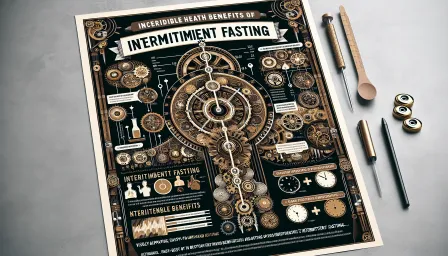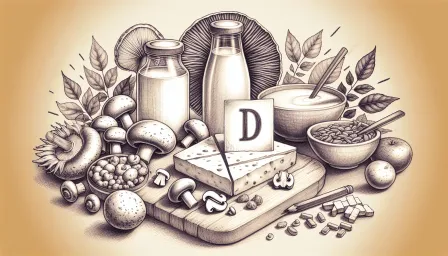Uncovering the Paleo Diet and Hunter-Gatherer Lifestyle: A Comprehensive Guide

Uncover the Paleo Diet and Hunter-Gatherer Lifestyle with this comprehensive guide, exploring their origins, benefits, and practical tips for modern-day implementation.
The Paleo diet and hunter-gatherer lifestyle have been the subject of much discussion and interest in recent years. As people strive for healthier living, understanding the benefits and practical applications of this ancient way of life can provide valuable insights. This comprehensive guide delves into everything you need to know about the Paleo diet and the hunter-gatherer lifestyle, offering a holistic view of how you can incorporate these principles into modern living.
What is the Paleo Diet?
The Paleo diet, also known as the Paleolithic diet, is based on the types of foods presumed to have been eaten by early humans. This diet focuses on whole foods that our hunter-gatherer ancestors would have consumed, such as:
- Lean meats
- Fish
- Fruits
- Vegetables
- Nuts and seeds
By following a Paleo diet, proponents believe that they can achieve better health outcomes, citing improved digestive health, weight loss, and reduced inflammation as some of the benefits.
The Origins of the Paleo Diet and Hunter-Gatherer Lifestyle
The Paleolithic Era
The Paleo diet is inspired by the Paleolithic era, which lasted from approximately 2.5 million to 10,000 years ago. During this time, humans survived as hunter-gatherers, foraging for food and hunting animals. Their diets were diverse and influenced by the availability of different foods in their environment.
Transition to Agriculture
With the advent of agriculture around 10,000 years ago, human diets began to change dramatically. Staple crops like wheat, rice, and corn became central to their diet, leading to the consumption of more processed foods. Advocates of the Paleo diet argue that this shift has contributed to modern health problems, such as obesity, diabetes, and cardiovascular diseases.
Benefits of the Paleo Diet and Hunter-Gatherer Lifestyle
Improved Nutrient Intake
One of the main benefits of the Paleo diet is that it emphasizes nutrient-dense foods. By focusing on whole, unprocessed foods, people often consume more vitamins, minerals, and antioxidants, which are essential for overall health.
Weight Management
The Paleo diet can support weight loss and help maintain a healthy weight. By avoiding processed foods and refined sugars, individuals can reduce their caloric intake and stabilize blood sugar levels, leading to gradual and sustainable weight loss.
Reduced Inflammation
Chronic inflammation is linked to many modern diseases, including heart disease and arthritis. The Paleo diet's emphasis on anti-inflammatory foods, such as fish and vegetables, can help reduce inflammation and promote better health.
How to Implement the Paleo Diet and Hunter-Gatherer Lifestyle
Plan Your Meals
Transitioning to a Paleo diet requires thoughtful planning. Focus on incorporating a variety of fruits, vegetables, lean proteins, and healthy fats into your meals. Avoid foods that are highly processed or contain refined sugars and grains.
Physical Activity
In addition to dietary changes, integrating physical activity reflective of the hunter-gatherer lifestyle can enhance health benefits. This includes engaging in regular, varied physical activities such as walking, running, lifting, and climbing.
Mindfulness and Mental Health
The hunter-gatherer lifestyle also emphasizes the importance of mental well-being and mindfulness. Incorporate stress-reducing activities like meditation, yoga, and spending time in nature to support holistic health.
Shopping Tips
When shopping for a Paleo diet, prioritize fresh and locally sourced foods. Visit farmer's markets, select organic produce when possible, and avoid the center aisles of grocery stores where processed foods are typically found.
Challenges and Considerations
Accessibility and Cost
One challenge of the Paleo diet is the potential cost and accessibility of certain foods. Organic and sustainably sourced products can be more expensive and may not be readily available in all areas. Planning and creative meal preparation can help mitigate these concerns.
Balance and Moderation
While the Paleo diet has many potential benefits, it is important to maintain balance and moderation. Consulting with a healthcare professional or registered dietitian can ensure that the diet meets all nutritional needs and is suitable for your individual health circumstances.
Conclusion
Embracing the Paleo diet and hunter-gatherer lifestyle can offer numerous health benefits, from improved nutrient intake to reduced inflammation and better weight management. By understanding the origins and principles of this ancient way of living, you can make informed choices to support your well-being in the modern world. Whether you're looking to revamp your diet or incorporate more physical activity, the Paleo approach provides a holistic framework for healthier living.



























